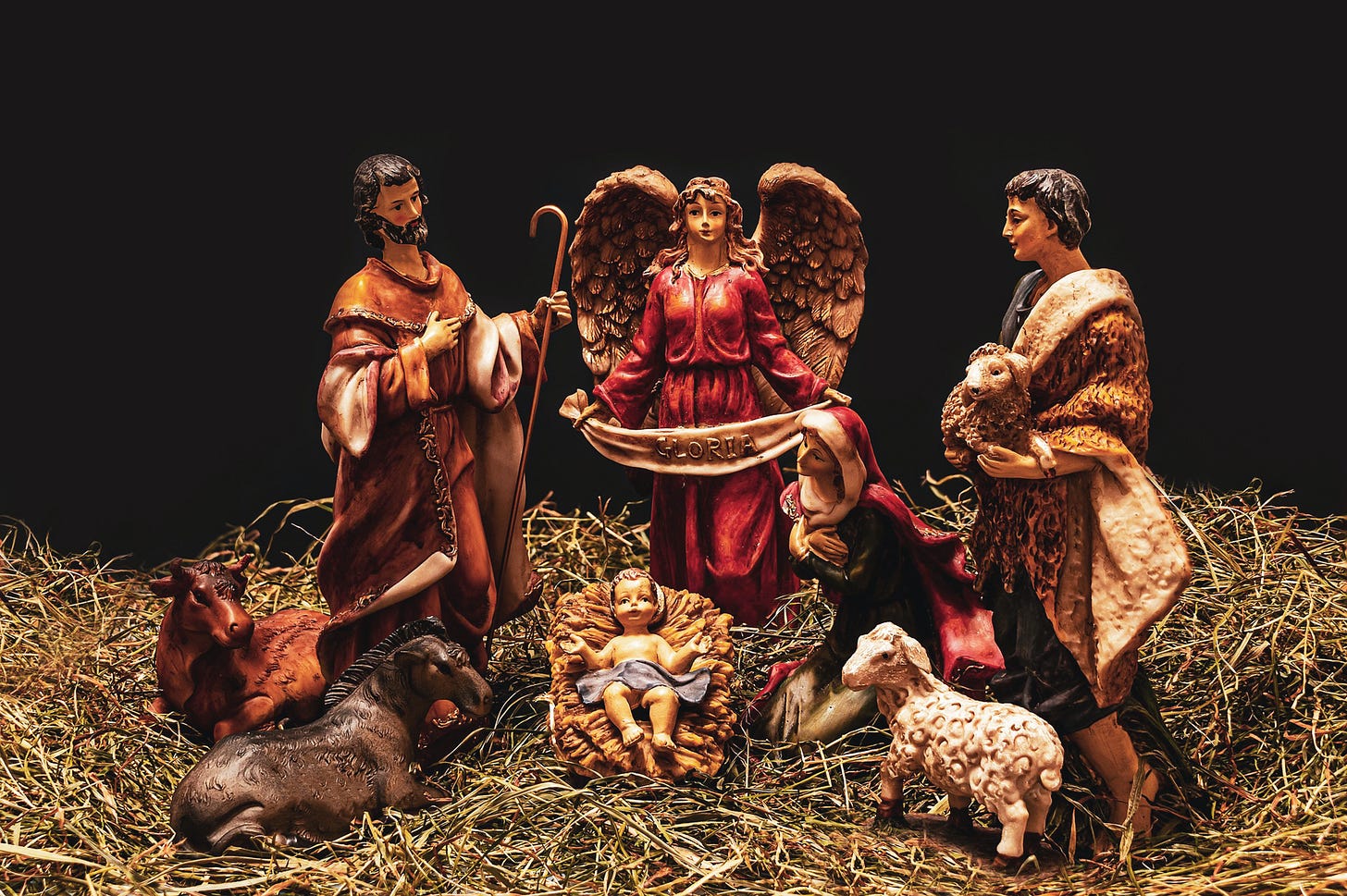God in the flesh.
Christmas is about way more than we could ever imagine.

I couldn’t refrain from sharing these beautiful words from John Bombaro’s latest piece for 1517, entitled “God In the Womb.” With pastoral eloquence and precision, he writes about the marvelous fact that God himself has condescended to our human frame and why his fellow preachers should declare that explosive fact for what it is — namely, the gospel of God. Referring to Mary’s song in the first chapter of Luke’s Gospel (Luke 1:46–56), John writes the following:
What we have here is a profound and momentous verbalization of hope and expectation provoked by the Creator Himself who was at that moment breaking into our human situation and tackling the overwhelmings of our fallen world and sinful predicament, not in the unapproachable splendor of His heavenly glory, but as a vulnerable infant. “Almighty God is visiting us in order to liberate us,” was the message of these courageous maidservants of the Lord. The shocking part about it was God was doing so not with peels of thunder atop a quaking mountain, but at the end of an umbilical cord — this close, this risky way — a way that fully identifies with human love but also human hardship . . .
God in the flesh, flesh like unto our own, flesh derived from Mary’s very own body. Something truly momentous was happening in the world and the two women at the center of it were giving expression to it in words of hope for a hopeless people, living in an age which had lost vision in God to act decisively on their behalf. The consolation of Israel was dawning. The Creator was entering His creation. That is how big this news is. That is how utterly unique this moment is. Preach it as such. It is the one-off of history, setting history into an entirely new direction with this event driving it . . .
It is not what we would expect for God’s entrance into humanity, nor indeed what we ourselves would have planned. It seems too lowly, too unseemly, and not at all divine. Yet, it is the very way of God, the way of the real. Indeed, we would expect His entrance into the world to be surrounded by men, men of power, men of stature. Instead, it is literally through a woman and surrounded by beasts of burden. It is this hope of the incarnation and no other, this hope of the virgin birth that is the true Gospel of Christ . . .
Mary’s song in the mouth of preachers will disabuse auditors of their self-referential thinking and put the focus firmly on God in the womb, God on the cross, God in the tomb.
It is through the humiliation of the cross that God “scatters the proud in their conceit.” Through the foolishness of the cross God makes foolish the wisdom of mankind . . . the Lord turns everything on its head. It is through the tip of the spear thrust into His side that waters of life begin to flow. His throne is one to which He is nailed, and so far from being clothed in jewel encrusted diadem and robes, He hangs before the world naked and with a crown of thorns pressed into His bleeding temples. This is the revelation of God, and it is marvelous to our eyes, for it is our salvation — and there is no other means, no other way. This is not the domesticated deity obscured by garments of glory, but instead the crucified Lord revealed in the nakedness of our humanity in real human history, bearing our sin and shame.
This time of year has a way of bringing out the poet in us all, I suppose. John’s enthralling lines, which contemplate the profound fact of “God in the womb,” serve as a compelling reminder that Christmas is about way more than we could ever imagine or comprehend. In the most unexpected of ways, God has come down so that he might bring us where he is. And while many have reckoned that God’s salvation of the world would be through this, that, or the other means, when he shows up as an infant born to peasant parents, he demonstrates the inexhaustible mystery of his wisdom and grace. The unforeseen mercy of Christ is captured in that phrase, “God in the womb.” No one could have predicted what God in Christ did — namely, take on a body so that he could sacrifice that body on the cross for you and me. That’s what Christmas is all about, Charlie Brown.
Merry Christmas, and grace and peace to you!



Hey Bradley, thank you for sharing this excerpt. This advent I've been enjoying reflecting on what Stephen Charnock had to say on the incarnation, and it's been a pleasure to share it with others on my Substack too!